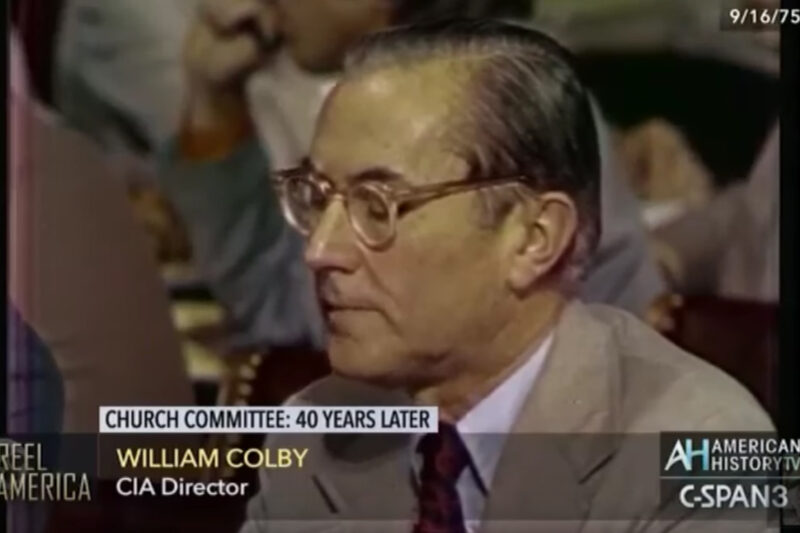Why Senate Staffers Who Investigated Nixon’s Spy Abuses Are Urging Obama to Pardon Snowden


When intelligence agencies operate with insufficient oversight, they often harm the very people they are meant to protect. Few know this as well as the 15 former Senate staffers who have called on President Obama and Attorney General Loretta Lynch to show leniency to whistleblower Edward Snowden.
The 15 staffers made their case in a letter sent Monday to Obama and Lynch. They all served on the Senate Select Committee to Study Governmental Operations with Respect to Intelligence Activities, better known as the Church Committee. Formed in 1975 to investigate abuses by the FBI, CIA, NSA, and other agencies, the Church Committee surfaced grim truths about how the U.S. government used legitimate intelligence activities as cover to attack, discredit, and destroy Americans whose sole offense was the lawful exercise of their constitutional rights.
The Church Committee uncovered shocking abuses of power. It found that the FBI had planted an informant in the NAACP for decades despite knowing the organization had done nothing illegal. It documented a long-running FBI program designed to harass and ruin anti-war protesters and civil rights activists — including by trying to get Martin Luther King Jr., to commit suicide. It revealed that the NSA intercepted every telegram leaving the U.S., also for decades. (Many years later, declassified documents revealed that the NSA also spied on Senator Church himself.)
These revelations and others paved the way for bipartisan reform to bring intelligence agencies back in line with American law and values.
“We know firsthand that lack of disclosure can cause just as many, if not more, harms to the nation than disclosure,” write the former staffers, who include among their ranks former officials from the White House, Department of Justice, and Department of Defense; an ambassador; a federal judge; and a number of academics. They argue that Snowden’s disclosures “have had and will continue to have the same beneficial impact” as their own work.
The authors of the letter also note the government’s leniency in the cases of several high-level government officials who similarly disclosed classified information. They cite as examples former National Security Advisor Sandy Berger and ex-CIA directors John Deutch and David Petraeus (who is now under consideration for the position of secretary of state in the Trump administration). They write:
In all these cases, recognition of the public service the individuals had provided weighed against strict enforcement of the law, to come to a fair and just result. There are, of course, differences between these cases and Snowden’s. But the crucial point is that only in Snowden’s case was the motivation behind his illegal activity to benefit America. The three others involved efforts to gain glory or avoid criticism, or simple convenience and simple disregard for the law that put our security at risk. Yet the perpetrators were treated leniently.
Snowden’s revelations led to the passage of the bipartisan USA Freedom Act, which followed a federal appellate court decision that ruled the government’s bulk collection of Americans’ phone records was illegal. It also led to executive action by President Obama to recognize the privacy rights of foreigners, which is unprecedented in American history, and to various other bipartisan efforts to rein in the NSA.
Because Snowden has been charged under the 1917 Espionage Act, however, he is barred from arguing to a jury that he acted in the public interest. He is unable to point out that his disclosures led to needed reform. And he cannot argue that President Obama himself recognized that the debate he generated “will make us stronger,” or that former Attorney General Eric Holder has concluded that he “performed a public service by raising the debate that we engaged in and by the changes that we made.”
Thus, despite the overwhelming public response to his disclosures, and the reforms that have resulted, Edward Snowden remains in exile today. This is a reality that “benefits nobody,” according to the former Church Committee staffers. Snowden served his country. Because of his courage, unlawful surveillance practices have ended. Oversight mechanisms have been strengthened. And three branches of government have reinforced Americans’ privacy rights.
It is time to bring Ed home. Join the former U.S. government officials in petitioning President Obama to help make this happen before January 20.


